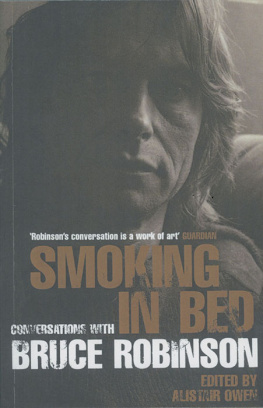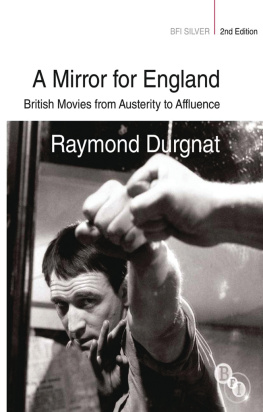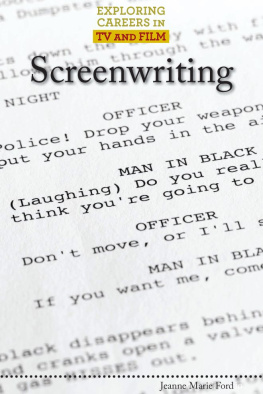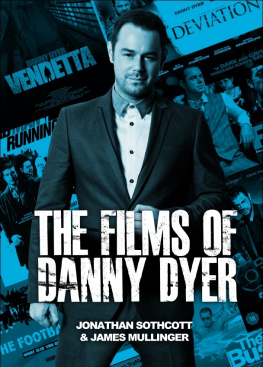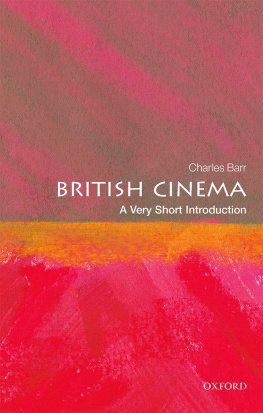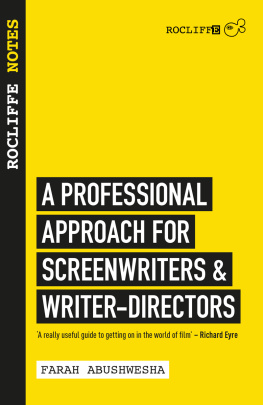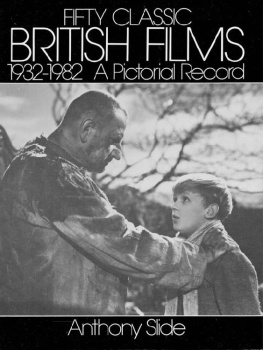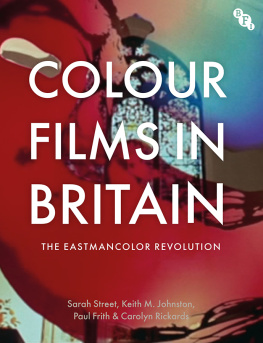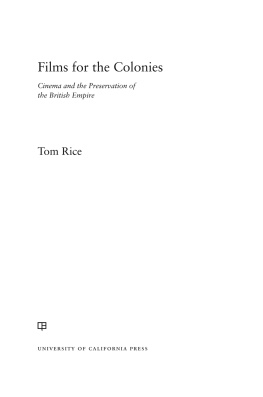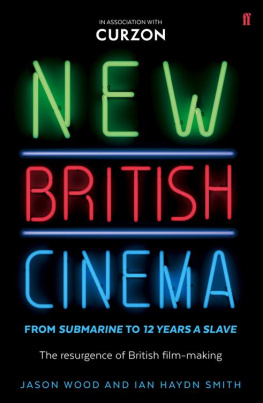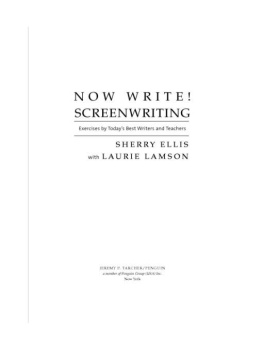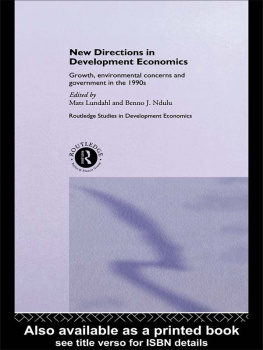Praise for Story and Character: Interviews with British Screenwriters, edited by Alistair Owen
Its a fascinating read. It may even suggest some of the reasons why British cinema is so brown in hue... Aspiring screenwriters in search of tips will find them in Story and Character
Sunday Tribune
This is the first anthology of interviews with British screenwriters. Theyre a motley bunch; thats part of the books charm. Scrupulously researched and full of instructive advice for aspiring writers, the book is engaging in its own right, with plenty to say about the problems of authorship in such a collaborative commercial medium, and fascinating sometimes caustic insights into numerous recent films
Time Out
This easy to dip into, informal anthology of interviews offers plenty of advice, but does so anecdotally, straight from the mouths of ten established British screenwriters who have been there and done that
Empire
Praise for Smoking in Bed: Conversations with Bruce Robinson, edited by Alistair Owen
The most purely likeable book about cinema I have ever read. Robinson talks about his profession in a way that is astonishingly clear-headed, funny and wise
David Hare, Guardian, Books of the Year
Furious and lyrical
Sunday Times
A rare and fulsome entertainment
Select
A cracking book of interviews
Loaded
With his spontaneous remarks reading like polished prose, these conversations are a reminder of how entertaining the man can be
Independent on Sunday
Consistently enthralling, exhibiting impressive political and artistic consciousness and the famed razor wit
Observer
Alive with Robinsons voice, his turn of phrase, his passionate digressions. Its as if it has sneaked up on literature by not ever considering itself as such. His conversation is a work of art
Nicholas Lezard, Guardian, Pick of the Week

First published in Great Britain 2003
This electronic edition published in 2016 by Bloomsbury Publishing Plc
Bloomsbury is a trademark of Bloomsbury Publishing Plc
All rights reserved.
You may not copy, distribute, transmit, reproduce or otherwise make available this publication (or any part of it) in any form, or by any means (including without limitation electronic, digital, optical, mechanical, photocopying, printing, recording or otherwise), without the prior written permission of the publisher. Any person who does any unauthorised act in relation to this publication may be liable to criminal prosecution and civil claims for damages.
Introduction and commentary copyright 2003 by Alistair Owen
Copyright in the individual interviews remains with the respective interviewees
Photograph credits:
Rupert Walters Johnny Haddock; Lee Hall Simon Annand; Richard Curtis Rex Features; Frank Cottrell Boyce Liverpool Daily Post & Echo; Neal Purvis & Robert Wade Danjaq, LLC and United Artists Corporation; Shawn Slovo Nigel Sutton; William Boyd Jerry Bauer; Hossein Anini Alex Jefford; Simon Beaufoy Sharon Thomas
The moral right of the authors has been asserted
| 50 Bedford Square | 1385 Broadway |
| London | New York |
| WC1B 3DP | NY 10018 |
| UK | USA |
A CIP catalogue record for this book is available from the British Library
epub ISBN: 9781 4088 8066 1
www.bloomsbury.com/alistairowen
To find out more about our authors and books visit www.bloomsbury.com. Here you will find extracts, author interviews, details of forthcoming events and the option to sign up for our newsletters.
This is the first ever anthology of interviews with British screenwriters. That gives you some idea of how the British regard screenwriting.
The real question is: why? Why do the press and the public ignore screenwriters while lionising stars and directors? Is it because stars are glamorous and directors are powerful and screenwriters are rarely either even though they may provide the three ingredients in Alfred Hitchocks famous recipe for making a great movie: a great script, a great script and a great script? Is it because most films have just one director but many have more than one screenwriter, some of whom receive a credit for drafts long-since abandoned while others remain uncredited despite contributing nearly half the shooting script, reinforcing the old adage Film is a directors medium? Is it because scripts are often changed to accommodate the requirements of the latest star or director attached to the project, rather than stars and directors accommodating themselves to the requirements of the script, reinforcing a newer adage, Film is a collaborative business bend over? Is it because a large proportion of films are adaptations of one sort or another, casting screenwriters as handmaidens or hatchet men beside the proper writers whose books or plays they are adapting? Or is it because a good book or a good play is likely to be published or performed in the way its author intended, instead of being rewritten again and again and again and then written off entirely, as fine screenplays often are?
The answer, I think, is: all of the above none of which diminishes the central role of screenwriting in popular cinema, a role which this book sets out to explore through thematic and technical discussions of the produced and unproduced work of leading British screenwriters. The book is not, however, a comprehensive survey of British screenwriting: among the anthologies waiting to be compiled are interviews with older screenwriters (all of the chosen interviewees were born between 1950 and 1966, but the thirties and forties produced many acclaimed dramatists), interviews with television writers (several of the interviewees talk about their work for TV, but the main focus is the big screen) and interviews with writer-directors (three of the interviewees have directed one feature apiece, but all are known primarily as writers). Nor is it a forensic study of the British film industry; nevertheless, much can be inferred from the fact that the interviewees all write or have written for American companies, or for British companies financed by America (FilmFour, for example, a bastion of British film production in one form or another for two decades, which was being wound up as I proof read the first edition, Warner Bros. co-production deal notwithstanding). It is, then, a broadly mainstream selection of British screenwriters, which happens to reflect my own interests and ambitions, although the final line-up would have been a little more eclectic if time and space had allowed me to include every screenwriter who generously agreed to be interviewed.
Each interview is preceded by a chronology of the interviewees work at the time the book goes to press, with projects listed in up to four main categories. Film covers theatrical features either released or in production; specified are the director, the year of first release and the country or countries of origin. Television covers serials, dramas and sitcoms aired on British terrestrial TV; specified here are the director, the year the work was first broadcast and the channel which first broadcast it. Uncredited covers theatrical features for which the interviewees either wrote an entire screenplay or were employed to polish an existing draft; specified again are the director, the year of first release and the country or countries of origin. Screenplays covers scripts either unproduced or in development; specified in this case is the studio or production company initially or currently involved, or the notation spec if the interviewees control the rights personally. By the time this edition is published, some of the scripts under discussion may actually have gone into production, or even been released, possibly bearing different titles, helmed by different directors and credited to different screenwriters; and, since certain interviewees requested that particular scripts should not be included among their work despite, in one or two instances, talking about them in the interviews these lists should be treated as a useful guide rather than taken as absolute gospel.

